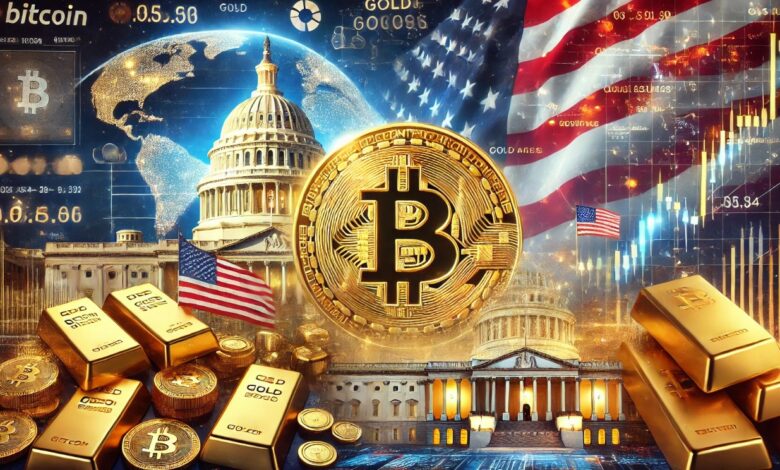
Trump’s National Bitcoin Reserve Proposal Sparks Controversy
The recent proposal by President-elect Donald Trump to establish a national Bitcoin reserve has stirred significant debate among economic analysts, drawing criticism from figures such as former Treasury Secretary Larry Summers.
Criticism from Economic Experts
Larry Summers, who played a pivotal role in managing the United States’ gold reserves during Bill Clinton’s presidency, has voiced strong objections to the plan. In a recent interview, he labeled the proposal as “illogical” and questioned its underlying purpose.
Bitcoin Reserve Proposal Viewed as Politically Driven
Summers expressed his doubts, arguing that while accumulating physical resources like gold and oil makes strategic sense, Bitcoin’s intangible nature means it does not fit well into a national reserve framework. He stated, “The only conceivable reason for this move is to cater to influential campaign donors,” implying that the proposal is more of a political maneuver than an economically sound strategy.
Trump initially floated the idea during a Bitcoin conference in July, outlining a plan to establish a strategic reserve of Bitcoin. This initiative aims to bolster U.S. financial security and counterbalance geopolitical competitors. Trump has cautioned that failing to act could allow countries like China to dominate the cryptocurrency sector. “If we don’t do it, China and others will,” he asserted at the rally.
To advance this proposal, pro-crypto advocate Senator Cynthia Lummis has put forth legislation that would mandate the U.S. government to purchase one million Bitcoin over the next five years, thereby acquiring approximately 5% of the global Bitcoin supply. This reserve, valued at nearly $100 billion, is touted as a potential tool for reducing the national debt, which stands at roughly $36 trillion, without the need for tax hikes. It also aims to strengthen the dollar by diversifying government assets.
Super PACs and Trump’s Cryptocurrency Policy
Investor enthusiasm for Trump’s crypto-friendly policies has fueled a significant rise in Bitcoin’s value, recently exceeding $100,000. Super Political Action Committees (PACs) with ties to the cryptocurrency industry have reportedly funneled millions into Trump’s campaign, creating a favorable environment for pro-crypto legislators.
To further refine his administration’s approach to cryptocurrency, Trump has revealed plans for a crypto advisory council. This council is expected to include executives from major cryptocurrency firms who have shown interest in joining. Additionally, venture capitalist David Sacks has been appointed as the White House’s AI and crypto czar, tasked with formulating a regulatory framework for this rapidly growing sector.
Concerns Over the Viability of a National Bitcoin Reserve
Despite the optimism among some investors, skepticism about the feasibility of a national Bitcoin reserve persists. Critics, including Peter Schiff, CEO of Euro Pacific Precious Metals, have raised alarms about Bitcoin’s volatility and the potential risks of using taxpayer funds to acquire it. Schiff cautioned that government involvement in Bitcoin could lead to an unsustainable cycle of perpetual purchasing, ultimately devaluing the dollar.
He remarked on social media platform X, “A reserve of something you can never sell and must continuously buy is worthless as a reserve.” Schiff warned that maintaining the “illusion of value” in a Bitcoin reserve might compel the government to continue purchasing, thereby eroding the dollar’s strength.
Currently, Bitcoin’s price is consolidating just below the $100,000 threshold, with the market’s leading cryptocurrency valued at $97,933, reflecting a 1.5% decrease over the past 24 hours.
“`







